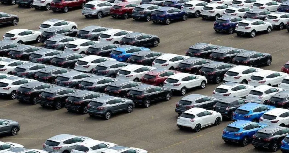The 18% GST (Goods and Services Tax) on selling old vehicles has caused confusion among people who want to sell their old cars. Likewise, this lead to questions about how it will affect them. The GST Council recently decided to charge a uniform 18% tax on the sale of all used vehicles, including electric vehicles (EVs), replacing the earlier different tax rates.
Several users on social media are sharing a video of Finance Minister Nirmala Sitharaman explaining the new rate on selling old cars to clear up confusion among car owners. “It is on that margin, the value between purchased price and resale price. Bought it for Rs 12 lakh, selling it for Rs 9 lakh in the name of a second-hand used vehicle, on the margin only this 18% has been put, as would be for any used car. So it is on the margin and not the entire amount at which the car is being sold,” explained the Finance Minister.
Notably, individuals didn’t have to pay the 18% GST if they are selling an old car to another person. Moreover, this is for the businesses. If a business has already claimed depreciation on a used vehicle, they only need to pay GST on the profit made from selling it, not the full selling price.
GST On Used Cars Explained In Pointers
- For Example, if a GST registered individual sells a car (original price Rs 20 lakh) to someone for Rs 10 lakh, and have claimed Rs 8 lakh in depreciation, then that person won’t owe any GST.
- That’s because he/she is actually selling it for less than its depreciated value.
- The individual only has to pay the GST if they sell the used vehicle for more than its depreciated value.
- If an individual sells a vehicle for Rs 15 lakh, and its depreciated value is Rs 12 lakh, then he/she has to pay GST only on the Rs 3 lakh profit.
Meanwhile, in all other cases, if you don’t claim depreciation, you’ll pay GST only on the profit you make from selling the used goods. If you sell it for less than you bought it for, you won’t owe any GST.



